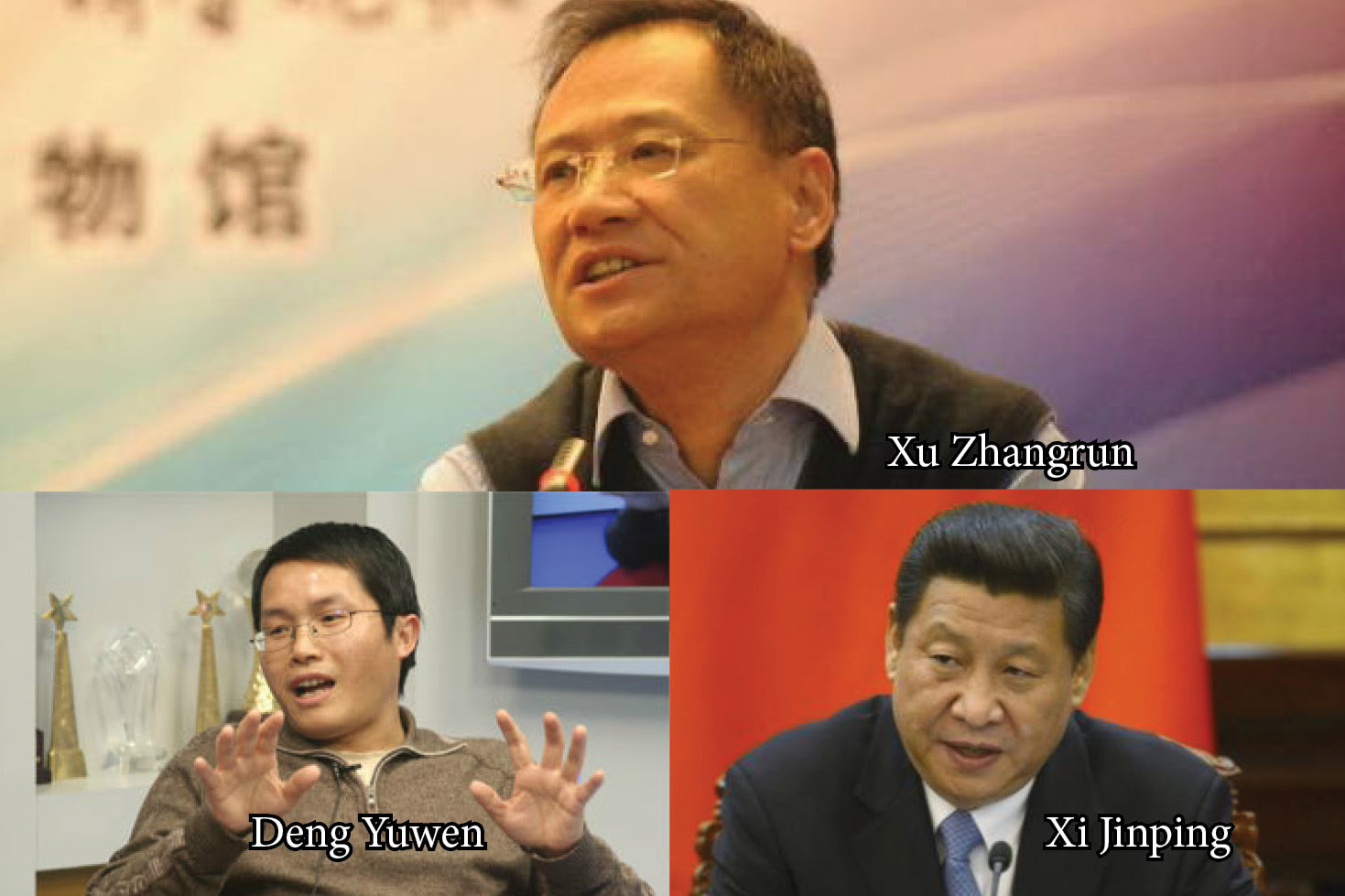Peak Xi Jinping? Two essays, six years apart, offer perspective on Chinese president

In 2012, Deng Yuwen 邓聿文, commentary writer and deputy editor of the Central Party School’s journal, Study Times, published a three-part essay titled “The Political Legacy of Hu-Wen” (胡温的政治遗产 hú wēn de zhèngzhì yíchǎn). The second part was called “The Ten Grave Problems” (十大问题 shí dà wèntí) — a critical list of 10 major socioeconomic and political problems left behind by the administration of Hu Jintao 胡锦涛 and Wen Jiabao 温家宝 (2002–2012).
You can read an English translation of it here, with an introduction by scholar Geremie Barmé. I was working with Geremie at the time on a series of yearbooks about China, and the essay struck us as something to be remembered.
Naturally, Deng lost his job at Study Times shortly after the essay was published, although he continues to publish widely. Reading Deng’s essay today with the benefit of hindsight, I think it remains a cogent critique of the decade under Hu and Wen era. The Ten Problems are, in summary:
- No breakthroughs in economic restructuring and advancing a consumer-driven economy.
- A failure to support and sustain a middle class.
- The rural-urban income and development gap has increased.
- The population policy lags behind reality.
- The bureaucratization and profit-incentivization of educational and scientific research institutions show no indication of being curtailed and continue to stifle creativity.
- Environmental degradation continues to worsen.
- The government has failed to establish a stable energy-supply system.
- The government has failed to build an effective and convincing system of shared values that can be accepted by the majority of its people, with resulting egregious behavior and the collapse of ideology.
- Diplomacy focused on “putting out fires” and “maintaining stability” lacks vision, strategic thinking, and a specific agenda.
- There have been insufficient efforts to push political reform and promote democratization.
Another thing that struck me as I read the essay six years after it was written: Many of the Xi Jinping era’s signature policies look like attempts to deal with these issues: the loosening of the one child policy, anti-pollution campaign, focus on poverty alleviation, the promotion of a value system based on the Chinese dream and adoration of Xi Jinping, a coherent global foreign policy that includes diplomacy and cash, epitomized by the Belt and Road…
Peak Xi Jinping?
Let’s turn to a second essay. Yesterday, the New York Times published an article by crack China reporter Chris Buckley that begins: “China’s top leader, Xi Jinping, seemed indomitable when lawmakers abolished a term limit on his power early this year… So Xu Zhangrun 许章润, a law professor at Tsinghua University in Beijing, took a big risk last week when he delivered the fiercest denunciation yet from a Chinese academic of Mr. Xi’s hard-line policies, revival of Communist orthodoxies and adulatory propaganda image.”
You can find Xu’s essay in translation by Geremie Barmé on China Heritage: Imminent fears, immediate hopes — a Beijing jeremiad, or in Chinese here.
Xu’s essay reminds me of Deng’s “10 Grave Problems” — not just because it is critical, but because I wonder if we’ll look back on it in six years’ time and see it as a marker of a political moment — the zenith of the Xi Jinping cult?
Perhaps not: Respected China-watcher Bill Bishop commented (paywall): “Color me skeptical that Xu’s letter will do anything other than lead to investigations of and crackdown on anyone associated with it.”
But in his introduction, Geremie Barmé argues that Xu’s essay will not go unnoticed:
Xu Zhangrun’s powerful plea is not a simple work of “dissent,” as the term is generally understood in the sense of samizdat protest literature. Given the unease within China’s elites today, its implications are also of a different order from liberal pro-Western “dissident writing.” Xu has issued a challenge from the intellectual and cultural heart of China, or 文化中國, to the political heart of the Communist Party…
…The content and powerful literary style of Xu’s “remonstrance” as well as its tone of “moral outrage” 義憤 will resonate deeply throughout the Chinese party-state system, as well as within the society and among concerned citizens more broadly.
Unless you read literary Chinese and Partyspeak like a scholar-official, I highly recommend you read Geremie’s translation on China Heritage.






